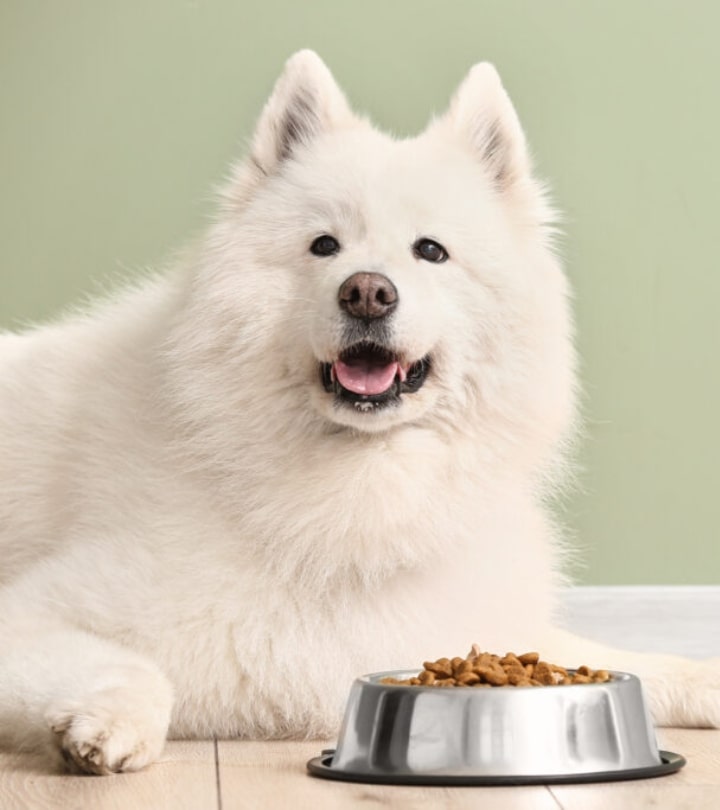Ensuring your pet receives a balanced diet is crucial for their overall health and well-being. Just like humans, pets require a mix of nutrients to thrive, including proteins, carbohydrates, fats, vitamins, and minerals. A well-rounded diet supports their immune system, promotes a healthy coat, and maintains optimal energy levels. Whether you’re a seasoned pet owner or a first-time pet parent, understanding the basics of pet nutrition can help you make informed decisions about what to feed your furry friend.
Table of Contents
Understanding Your Pet’s Nutritional Needs
Different pets have different dietary requirements based on their species, age, size, and activity level. For instance, the nutritional needs of a growing puppy or kitten differ significantly from those of an adult or senior pet. To ensure your pet is getting a balanced diet, consider the following key nutrients:
1. Proteins:
- Proteins are the building blocks of your pet’s body, essential for muscle development and repair. High-quality protein sources include chicken, beef, fish, and lamb. Ensure that the primary ingredient in your pet’s food is a named animal protein, rather than a by-product or filler.
2. Carbohydrates:
- Carbohydrates provide energy and aid in proper digestion. While dogs can benefit from grains like rice and barley, cats, being obligate carnivores, require minimal carbohydrates in their diet. Look for pet foods with complex carbohydrates like sweet potatoes and brown rice, which offer sustained energy.
3. Fats:
- Fats are vital for a healthy coat and skin, as well as for brain and eye development. Omega-3 and Omega-6 fatty acids are particularly important. These fats can be found in fish oil, flaxseed, and poultry fat. Ensure your pet’s diet includes the right balance of fats for their life stage and health needs.
4. Vitamins and Minerals:
- Vitamins and minerals are essential for immune function, bone health, and metabolic processes. Vitamins like A, D, E, and K, along with minerals like calcium and phosphorus, should be present in your pet’s diet. Many commercial pet foods are fortified with these nutrients, but always check the label to ensure balanced nutrition.
Choosing the Right Food for Your Pet
When selecting pet food, quality matters. Opt for brands that use natural, wholesome ingredients without unnecessary additives or preservatives. It’s also important to choose food that matches your pet’s specific needs, such as age-appropriate formulas or options for pets with sensitivities or allergies.
1. Reading Labels:
- Pet food labels can be confusing, but it’s important to know what to look for. Ingredients are listed by weight, so the first few ingredients should be high-quality proteins. Avoid foods with vague terms like “meat meal” or “animal by-products.” Instead, look for clearly named ingredients and limited fillers.
2. Special Dietary Needs:
- Some pets have special dietary requirements due to health conditions like diabetes, obesity, or food allergies. If your pet has specific health needs, consult your veterinarian for diet recommendations. There are many specialized pet foods available that cater to various health concerns.
Incorporating Fresh Foods
In addition to commercial pet foods, you can enhance your pet’s diet with fresh, whole foods. Vegetables like carrots, green beans, and pumpkin can be nutritious additions for dogs, while small amounts of cooked meat or fish can be beneficial for both dogs and cats. However, it’s important to avoid foods that are toxic to pets, such as onions, garlic, grapes, and chocolate.
The Role of Hydration
Proper hydration is as important as a balanced diet. Ensure your pet has access to fresh, clean water at all times. Wet pet food can also help with hydration, particularly for pets that don’t drink enough water on their own. For pets prone to urinary tract issues, increasing their water intake through wet food or broths can be beneficial.
Grooming and Nutrition Go Hand in Hand
While diet is a key component of your pet’s health, grooming also plays a significant role in their overall well-being. Regular grooming, including brushing and trimming, keeps your pet’s coat healthy and can prevent issues like matting or skin infections. Investing in quality tools, such as dog grooming clippers, can make the grooming process easier and more effective, ensuring your pet stays comfortable and looking their best.
High-quality grooming tools like dog grooming clippers are essential for maintaining your pet’s coat. Regular trimming helps to manage fur length and prevent tangles, especially in breeds with longer coats. Proper grooming, combined with a balanced diet, contributes to a shiny, healthy coat and overall pet health.
Conclusion
A balanced diet is fundamental to your pet’s health and happiness. By understanding your pet’s nutritional needs and choosing high-quality food, you can ensure they get the nutrients they need to thrive. Don’t forget the importance of hydration and regular grooming in maintaining their overall well-being. With the right care and attention, your pet will enjoy a long, healthy life by your side.










